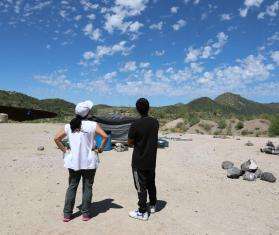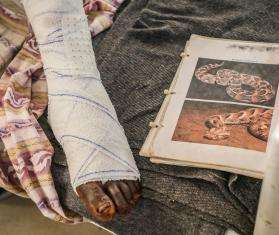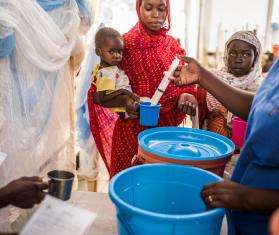“What if they didn’t need to run from hell? What if we were there sooner? What if they left on a better boat?"
These are the haunting ‘what ifs’ expressed by our cultural mediator, Nejma Banks, following a critical rescue earlier this year in the central Mediterranean Sea while on board the Geo Barents, the search and rescue vessel Doctors Without Borders/Médecins Sans Frontières (MSF) operates. During this rescue, a woman tragically passed away, and Nejma had the responsibility of relaying the news to the woman’s partner.
Nejma is a refugee herself with family roots in Africa and the Middle East. Her own migration experience has given her a strong understanding of the unique challenges refugees, migrants, asylum seekers, and internally displaced people face.
Deeply moved by this experience, she wrote this poem to tell the story.
He,
He was holding Her arm. He did not let go.
The ridiculous toy-like rubber boat was flimsily holding about 60-70 people.
It was packed with a patchwork of dark and multicolored moving garments with moving limbs. Most of them high with fuel and exhaustion.
My stare goes to the middle. That is where I saw Him.
Standing. Holding Her arm. His dark skin.
His dark drenched cloths.
His dark eyes, beat up and almost resigned.
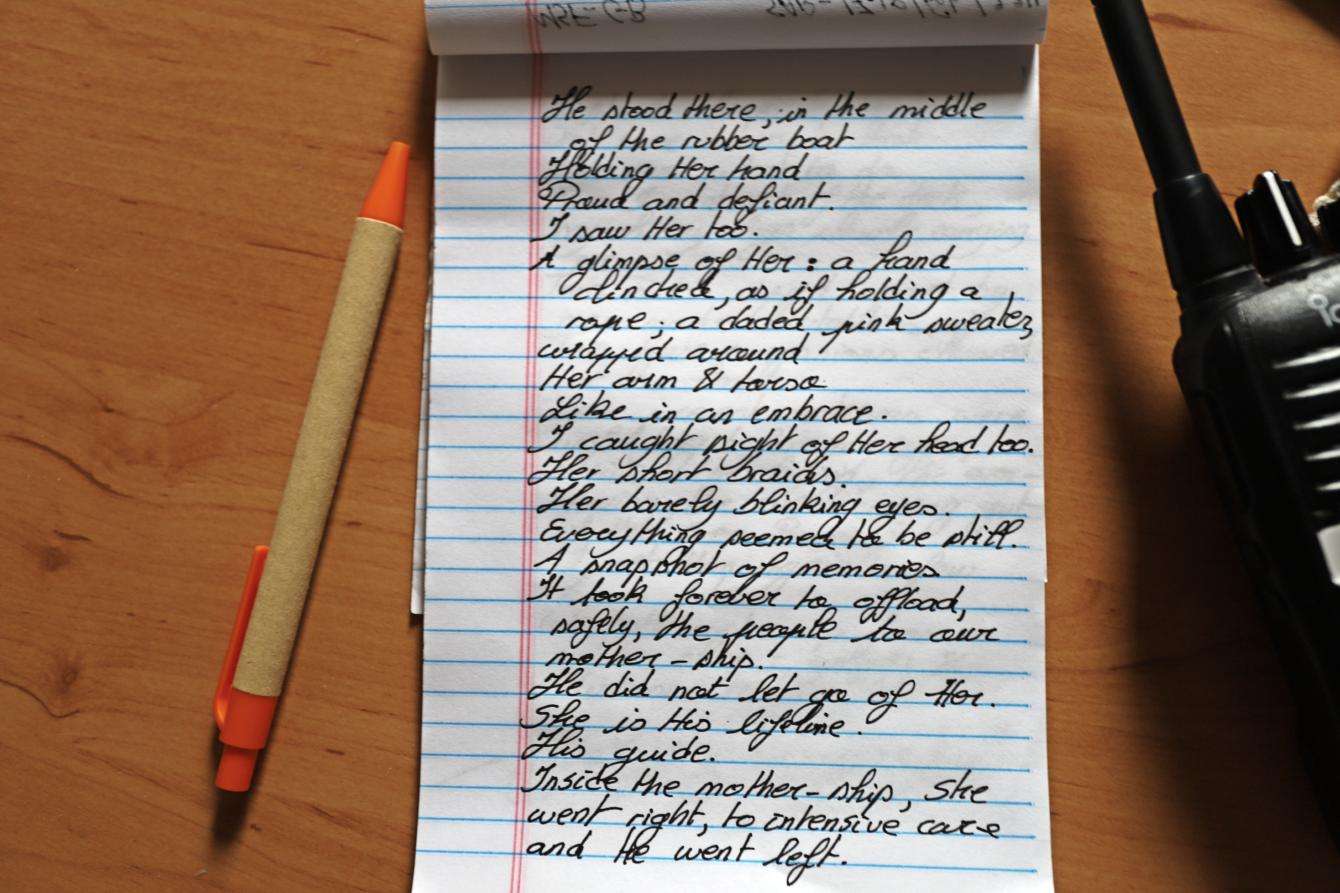
They were competing with the merciless darkness of this unruly see, in the heart of the night. He stood there, in the middle of the rubber boat.
Holding her hand Proud and defiant. I saw Her too.
A glimpse of Her: a hand clinched, as if holding a rope; a faded pink sweater, wrapped around Her arm and torso.
Like in an embrace.
I caught sight of Her head, too. Her short braids.
Her barely blinking eyes.
Everything seemed to be still. A snapshot of memories.
It took forever to offload safely the people to our mother-ship. He did not let go of Her.
She is His lifeline.
His guide.
Inside the mother-ship, She went right to intensive care and He went left. I stood there.
Not sure where to look. Not sure what to do.
Then I went out of the deck, my heavy legs slowly carrying me. Two souls ripped apart by man-made brutalities.
Two love companions cleaved at the heart.
Their present destinies were unfolding before my eyes, inside the living, the ever-moving, the ever-caring gut of the Geo Barents.
I met him again a few hours later.
We both woke up from a restless sleep: groggy and disconnected. He is walking towards me: tall, proud and determined.
He asks about Her
He says that He wants to see His wife who is asleep. To wake her up.
I looked around in a haze.
The medical team was busy helping another person. I don’t see anyone of my team nearby.
No one had told Him? I have never done this. I don’t want to do this.
My words are failing me.
I have few languages within me, but I can’t find the one that can ease His pain. The obvious inadequacy of ordinary words in a moment like this!
I blurt it out.
I might have stuttered too. She died.
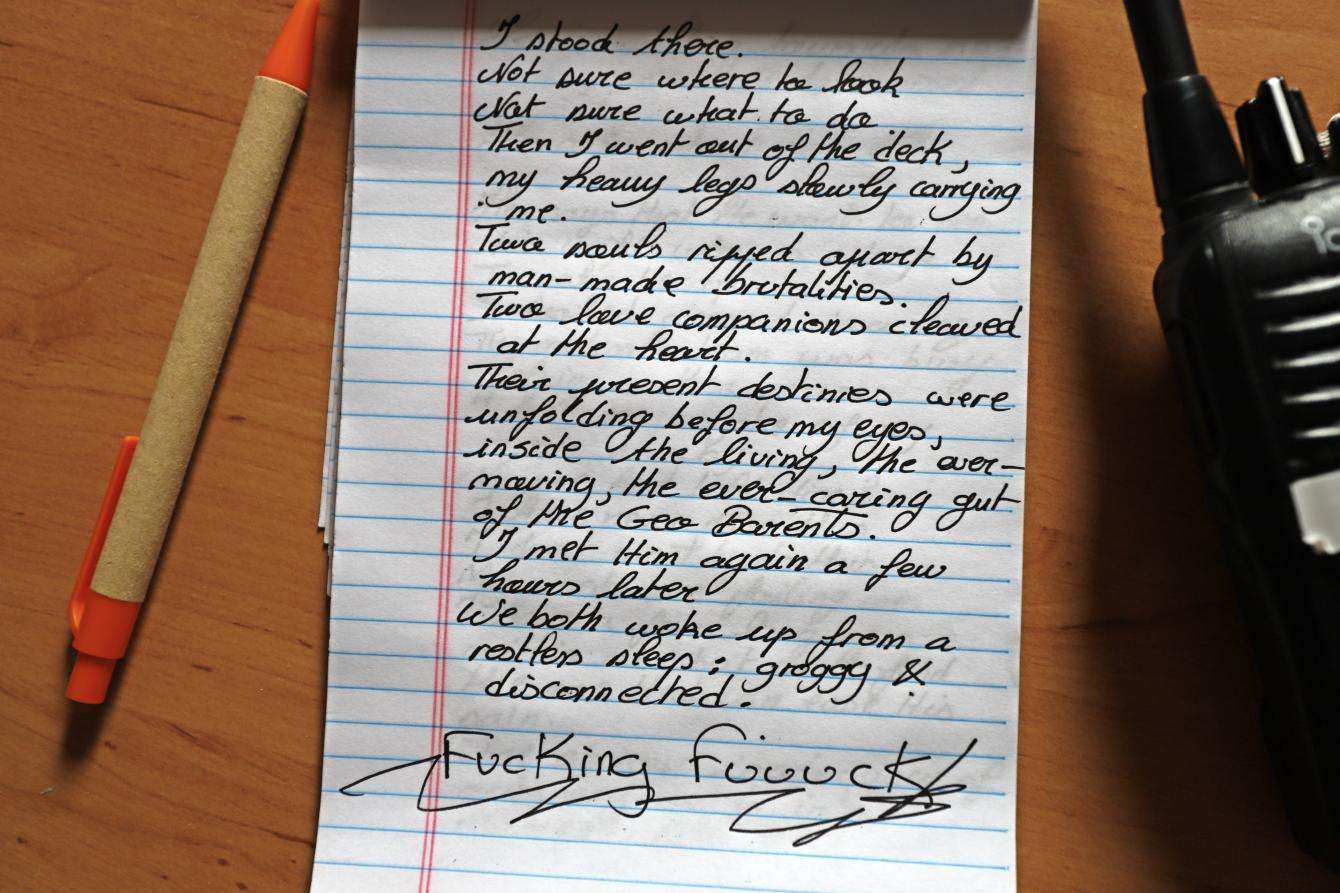
The agonizing sound of a man who has lost everything, will never leave me. I could not ease His pain.
I could not bring Her back.
What if they didn’t need to run from hell? What if we were there sooner?
What if they left on a better boat? On an airplane? With powerful passports or easy visas, dry luggage and hearts full of dreams and hopes to be lived?
I imagine them, during their trek to that fateful rubber boat, holding hands, talking about their future children going to school safely.
I imagine them, drawing their ideal little house on the hot sands of the Sahara. Nothing fancy, just small, clean and safe.
I imagine them, talking about the food they would cook and eat, as their mouths have not tasted any in the torturous detention centers, they found themselves in.
I know that life is a giant wheel that cannot move without crushing someone. But tell me policymakers, what would you say to Him?

